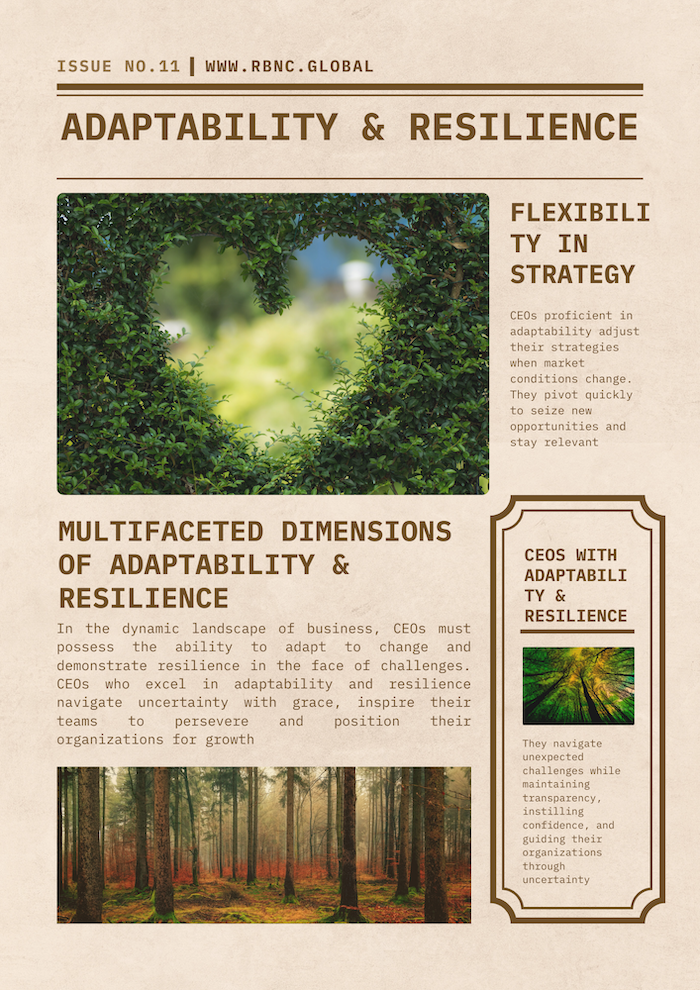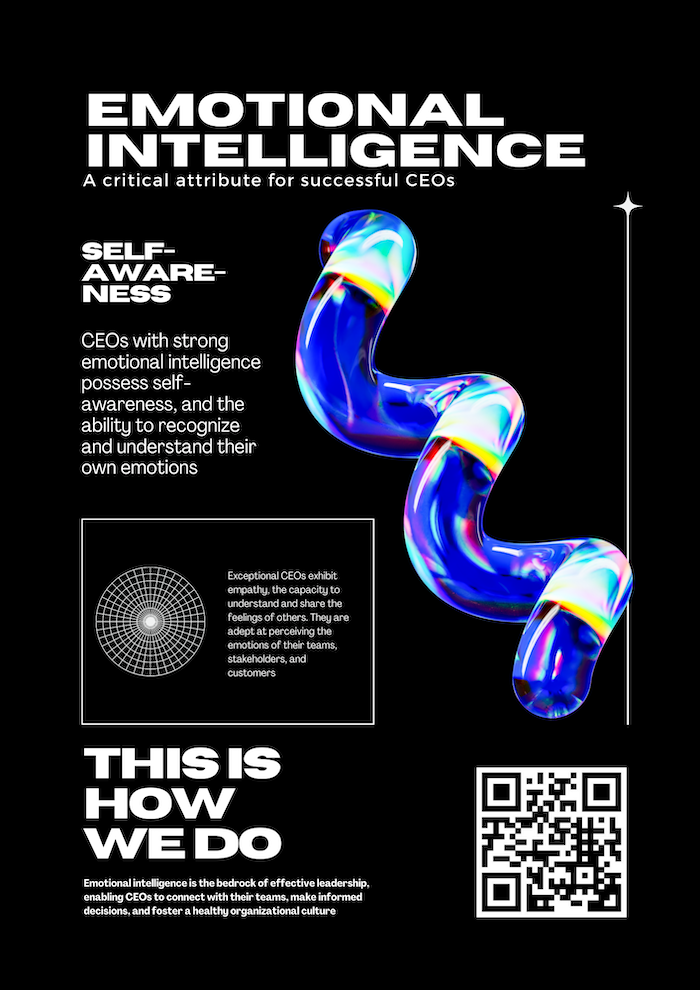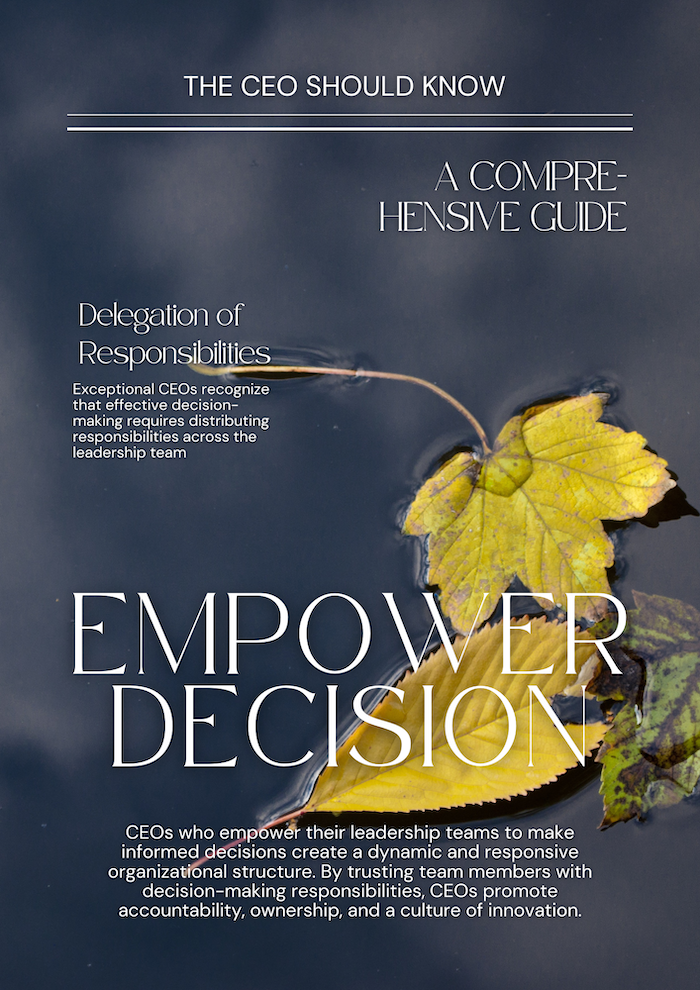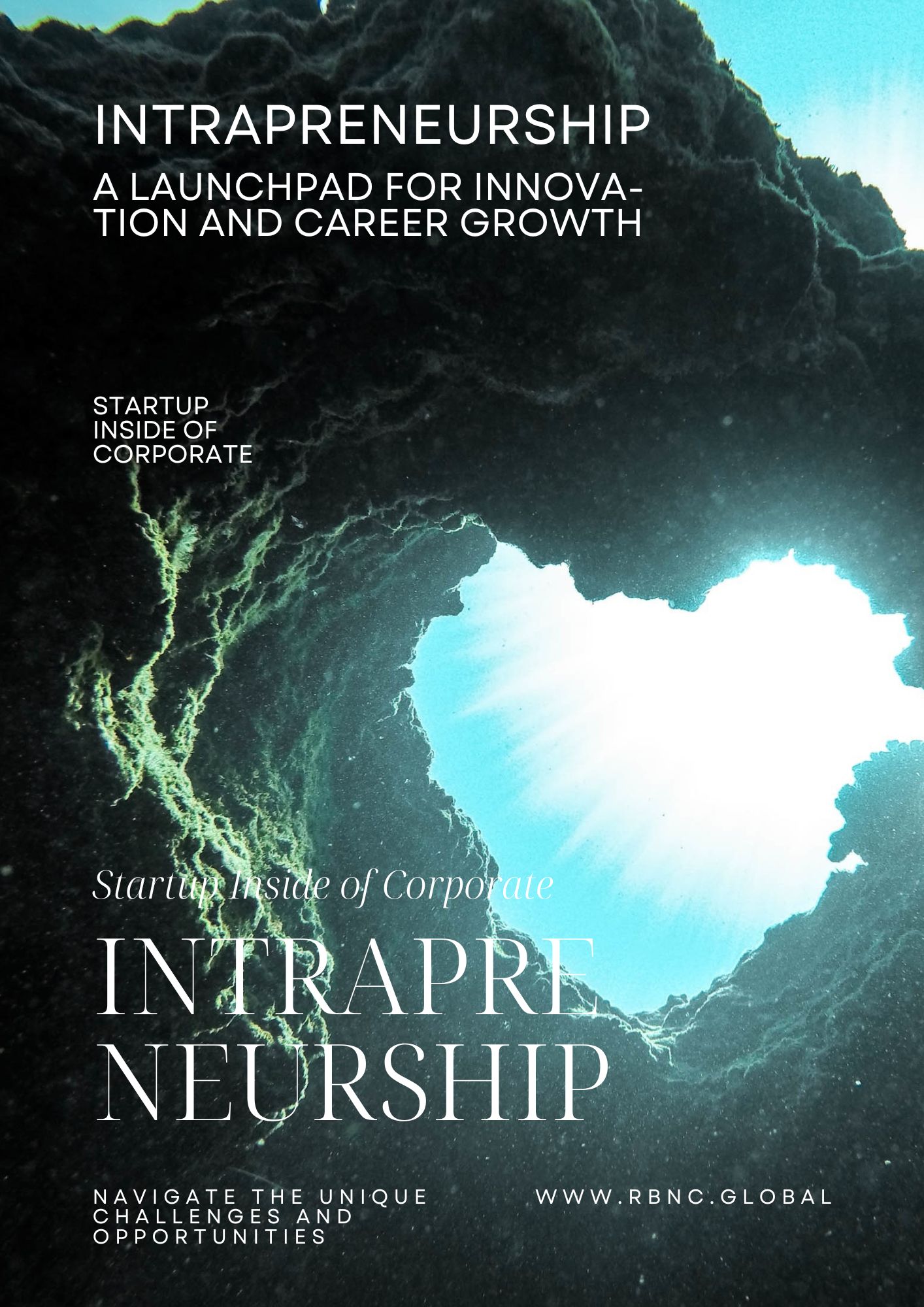Adaptability and Resilience - The CEO Skills
In the dynamic landscape of business, CEOs must possess the ability to adapt to change and demonstrate resilience in the face of challenges. CEOs who excel in adaptability and resilience navigate uncertainty with grace, inspire their teams to persevere and position their organizations for growth. In this section, we'll explore the multifaceted dimensions of adaptability and resilience that define exceptional CEO leadership.
Adaptability:
Exceptional CEOs embrace change as an opportunity for growth and innovation. They understand that adaptability is crucial in responding to evolving market trends, technological advancements, and shifting consumer behaviours.
- Flexibility in Strategy: CEOs proficient in adaptability adjust their strategies when market conditions change. They pivot quickly to seize new opportunities and stay relevant.
- Embracing New Technologies: These CEOs keep pace with emerging technologies and industry trends. They foster a culture of experimentation and exploration to harness the benefits of innovation.
Resilience:
Successful CEOs demonstrate resilience in the face of adversity. They maintain composure, persevere through challenges, and lead with optimism even when confronted with setbacks.
- Positive Mindset: CEOs skilled in resilience maintain a positive outlook, focusing on solutions rather than dwelling on problems. They inspire their teams to approach challenges with determination.
- Learning from Setbacks: These CEOs view setbacks as opportunities for growth and learning. They analyze the root causes of failures, extract valuable lessons, and use this knowledge to inform future decisions.
Crisis Management:
CEOs with adaptability and resilience are effective crisis managers. They navigate unexpected challenges while maintaining transparency, instilling confidence, and guiding their organizations through uncertainty.
- Rapid Decision-Making: CEOs proficient in crisis management make decisions swiftly, balancing the need for timely action with the importance of informed choices.
- Communication in Crisis: These CEOs communicate transparently during crises, ensuring that stakeholders remain well-informed about the situation and the steps being taken to address it.
Change Leadership:
Exceptional CEOs lead their organizations through periods of change. They inspire their teams to embrace change, alleviate uncertainty, and align the organization with new strategic directions.
- Leading by Example: CEOs who excel in change leadership model adaptability and resilience. They demonstrate their willingness to change and navigate challenges, inspiring others to do the same.
- Communication Strategy: These CEOs develop a clear communication strategy during times of change. They address concerns, articulate the benefits of change, and provide a roadmap for navigating transitions.
Conclusion:
Adaptability and resilience are not just survival skills; they are the foundation of a CEO's ability to lead in a rapidly changing world. CEOs who embrace change, demonstrate resilience, navigate crises with confidence, and lead their organizations through transformational periods inspire trust, foster innovation, and position their organizations for sustained success. By cultivating adaptability and resilience, CEOs can weather uncertainties, seize opportunities, and guide their teams toward a future of growth and resilience.
Back to: Chapter 2: Essential Skills and Qualities of a CEO









